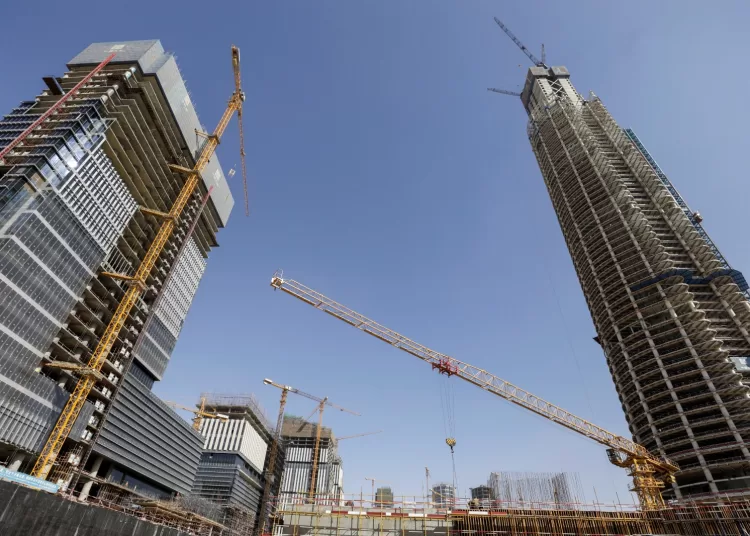The construction industry in Egypt has undergone remarkable growth in the last decade, fuelled by the country’s visionary goals, public-private partnerships, emphasis on green buildings, development of infrastructure, and investments in residential and mixed-use sectors, real estate market research JLL said in a report.
Based on insights gathered from industry sources and experts, the JLL report affirms that despite prevailing national and global economic challenges, Egypt holds a share of $515 billion (12 per cent) of the total pipeline value of unawarded projects in the wider MENA region, which is projected to reach $3.9 trillion.
Taking up the third position in the MENA after Saudi Arabia and the UAE, Egypt’s residential projects make up around $36 billion (21 per cent) of this share while mixed-use projects in the country account for $115 billion (22 per cent), according to the JLL report.
Currency flotation
Egypt has been navigating through ongoing economic challenges, leading to market volatility and a devaluation of the local currency. As anticipated, the Egyptian currency underwent its fourth round of significant flotation against the US dollar on March 6, reaching a peak of over LE50 per dollar, up from around LE31 previously.
“The Central Bank of Egypt’s (CBE) made the decision to liberalise the exchange rate in order to attractforeign currency and combat inflation. In February 2024, inflation reached a record high of 11.4 per cent and stood at 33.3 per cent year-on-year in March 2024.To address these macroeconomic pressures, the CBE also secured a new agreement with the International Monitory Fund (IMF) to increaseits loan from $3 billion to $8 billion,” said the JLL report, a copy of which was made available to The Egyptian Gazette.
According to Mordor Intelligence, the growth forecast is estimated to exceed 8 per cent (compounded annual growth rate) until 2029. Egypt had the highest value of project awards in 2022, reaching $36 billion. However, in 2023, the value declined to $15 billion.
Construction costs
JLL has consistently observed an upward trend in construction prices since the beginning of the Covid-19 pandemic. However, our outlook indicates a higher likelihood of volatility due to various economic challenges and external risks.
“Notably, we have observed rising input costs primarily influenced by intense local demand competition, elevated energyprices, increased labour expenses resulting from the global surge in the cost of living, and fluctuations in freight and shipping costs associated with high oil prices and disruptions in the supply chain,” the report said.
As a result, our benchmark construction rates have increased by more than 20 per cent year-on-year.
Furthermore, JLL recognises the presence of global headwinds such as climate change, adverse weather conditions, elevated interest rates and inflationary pressures.






Discussion about this post